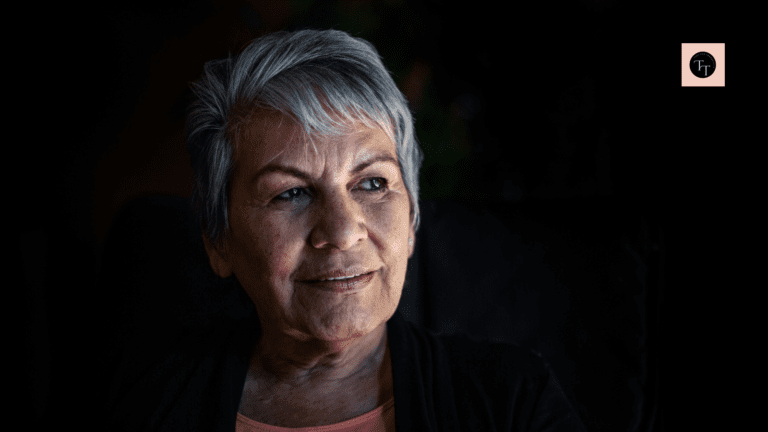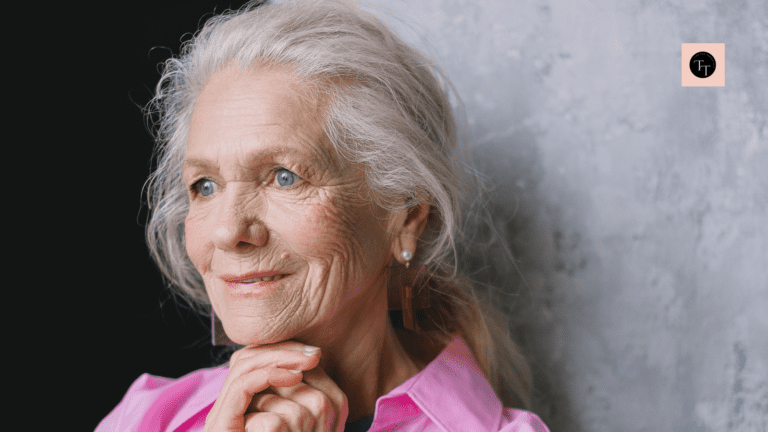Increase Emotional Self-Awareness to Calm Your Mind!
Emotional self-awareness is the ability to understand and recognize your inner feelings. It’s about taking a moment to pause and check in with yourself, to notice your emotions, label them, and try to understand their root cause. Only then, can you take the correct steps to deal with them.
As we get older, the importance of emotional self-awareness increases. Life brings changes—retirement, children moving away, loss of loved ones. These changes can leave us feeling unsettled, or even empty.
Only a high emotional self-awareness can help you deal with these changes. By becoming more aware of your emotions, you can stay calm, and find peace and tranquility, no matter what life throws at you.
It was the early days of my quest for self-discovery and I had made my way to Rishikesh, India. I was a newbie to the Indian culture and felt completely lost, away from my own country, family, and friends. One evening, I sat alone on the ghats of the Ganges and emotions completely overwhelmed me.
An elderly Indian lady, sensing my distress, approached me, sat down beside me, and hugged me. She asked me to let it all out. Tears flowed and all my emotions just came out. All this time the old lady held me and kept repeating, “I understand, don’t worry, all will be well.”
Finally, I got a grip on my emotions. Then, she shared her story. Her life had gone through a series of tragedies, much worse than mine, but she had found peace through spirituality. She assured me, I would do too, as I had already embarked on the right path.
I believe, my healing began that evening and emotional self-awareness was the starting point.
Emotional self-awareness is not about fixing or changing anything immediately. It’s about becoming aware of your emotions, understanding them, and then dealing with them calmly, without any attachment.
Importance of Emotional Self-Awareness for Senior Women
As you get older, life presents new challenges. Health and finances top the list, but the feeling of an emotional vacuum is not far behind.
Chances are, you are retired, children have moved on, and you have an empty nest. Feelings of loneliness, and anxiety about the future, hit you hard. Relationships change, health may not be as great, finances may be tight, so no wonder you are left wondering, “What’s next?”
Emotional self-awareness can help you navigate these turbulent times with grace and strength. Emotional self-awareness is not about avoiding emotions, but understanding, embracing, and dealing with them.
Here are some common scenarios and ways to handle them using the tool of emotional self-awareness.
1. Navigating Loneliness
Loneliness is common in this stage of life. Friends may move away or pass on. Children, usually, start their own families and career aspirations take them to a different location. Emotional self-awareness helps you acknowledge these feelings instead of pushing them away or fretting about the circumstances.
Acknowledge Your Loneliness
Understand that living alone is not an excuse to feel lonely. You can live alone and be happy. Living alone is a physical state while feeling lonely is an emotional state.
Emotional self-awareness can help you get over your loneliness. Recognizing this emotion is the first step to managing it. Once acknowledged, you can take the appropriate steps. Maybe, join a hobby group, such as birdwatching, or volunteer at the local library.
2. Managing Anxiety About the Future
The future is always the unknown. Uncertainty and negative thoughts about the future is the root cause for anxiety. A moderate amount of anxiety is natural and even healthy, provided you take the right steps to minimize the uncertainty.
Understand Your Anxiety
“Your vision will become clear only when you look into your heart. Who looks outside, dreams; who looks inside, awakes.” – Carl Jung
Instead of worrying endlessly, stop and ask yourself what exactly you’re afraid of. Often, just naming the fear can take away some of its power. From there, you can make thoughtful choices moving forward.
Worrying about the future decline in health is positive, provided you will exercise, eat healthily, etc. If you are concerned about the state of your future finances, consult a certified financial advisor and act accordingly. If you need to downsize, do it and be done with it.
Emotional self-awareness helps you take cognizance of your anxiety, put a name on it, analyze the root cause of your anxiety, take the best decision possible, and be done with it.
After that live your life in peace and knowledge that you have done the best you could. There is no more reason for anxiety, leave aside letting it overwhelm you.
3. Adapting to Changing Relationships
As family roles change and friends come and go, relationships may not look the same. This can bring a deep sense of loss or confusion. Emotional self-awareness allows you to sit with these emotions and understand why they are there.
Embrace Your Emotions
When relationships change, it’s normal to grieve what once was. By allowing yourself to feel sadness or frustration, you can better move through it and come out stronger on the other side.
The practice of mindfulness is very helpful in helping you develop emotional self-awareness. Mindfulness is the art of living in the present moment only. Do not feel regret for what happened in the past or crave for the good things of the past to return.
Instead live in the present and seek peace, joy, and happiness in the present moment.
4. Building Resilience
Emotional self-awareness strengthens your ability to handle life’s challenges. This awareness doesn’t make difficulties disappear, but now you have the resilience to bounce back from tough moments.
Find Strength in Awareness
“Peace comes from within. Do not seek it without.” – Buddha
When you’re aware of your emotions, you’re better equipped to respond thoughtfully, rather than reacting in the moment. This resilience builds over time, making you more adaptable and grounded.
Once again, I recommend adopting mindfulness in general and mindfulness meditation in particular to develop your emotional self-awareness, which builds resilience.
Mindfulness strengthens resilience in senior women by fostering self-awareness, reducing stress, and helping them stay present. This empowers them to adapt to life’s transitions with grace and emotional balance.
5. Embracing Acceptance
Finally, emotional self-awareness teaches acceptance. When you encounter challenges or discomfort, remember that it’s part of the human experience.
According to Buddha’s teachings, all suffering is caused by the fact that our minds do not accept the concept of impermanence.
But, just as impermanence is woven into life, so is the potential for growth, wisdom, and compassion.
Accept and recognizing your emotions, no matter how uncomfortable. When you stop fighting your feelings, they lose their grip on you.
“The wound is the place where the Light enters you.” – Rumi
Practice Gentle Acceptance
It’s okay to feel a range of emotions. Instead of resisting, try gently accepting them. With acceptance comes a sense of peace. Mindfulness, emotional self-awareness, and resilience help you become mentally strong. You become capable of weathering any emotional storm.
Emotional self-awareness is not a quick fix. It needs to be developed and strengthened through mindfulness and meditation.
Emotional self-awareness brings immense value, especially in this time of life. It helps you understand yourself better. It lets you approach life’s changes with more clarity, strength, and compassion.
In Conclusion:
Emotional self-awareness is a journey that doesn’t end, but with each step, you find yourself stronger and more at peace. Life’s challenges will come, but by tuning in to your emotions, you can navigate them with resilience, clarity, and grace.
Remember, it’s not about being perfect—it’s about accepting and understanding yourself, one moment at a time. This practice brings comfort and a deeper connection to yourself, helping you live fully in this season of life.






